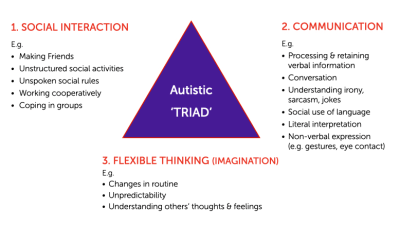By Dr. Maria Daves – Psychologist
Wondering Whether you Should be Assessed for Autism as an Adult?
When considering an autism assessment, there are various factors to take into account. Therefore, when people come to see me in my clinic, I’m interested in understanding why they are seeking an assessment at this particular time. I want to explore the circumstances and events in their lives that indicate the need for an autism assessment.
Key Features of Adults on the Autism Spectrum
Now, let’s discuss some key features of individuals on the autism spectrum. Those on the autism spectrum often encounter difficulties in social interaction, social communication, flexibility of thought, coping with change, and sensory sensitivities.
Social Interaction Challenges
Let’s start with social interaction. Individuals on the autism spectrum may find it challenging to develop and maintain friendships. They may struggle with unstructured social activities, understanding unspoken social rules, and working in groups. Initiating social engagements can be anxiety-inducing, as they may feel unsure about what to say and experience heightened anxiety in social situations.
Social Communication Struggles
Moving on to social communication. Individuals on the autism spectrum often find it difficult to interpret non-verbal and expressive communication. This includes gestures, facial expressions, and the social nuances of language. Understanding social banter, jokes, and sarcasm can be particularly challenging. Engaging in reciprocal conversations that require inferring and predicting the responses of others can also pose difficulties. Processing and retaining verbal information in real-time conversations and providing spontaneous responses can be demanding as well.
Challenges in Flexible Thinking and Dealing with Change
It is important to note that individuals on the autism spectrum can indeed have a great sense of humour. Some clients who have come for an autism assessment and that I have worked with display a brilliant sense of humour that they skilfully utilise in various settings. However, understanding other people’s humour and engaging in social banter in the moment can be a struggle for them. Another aspect they find challenging is flexible thinking. Sudden changes in routine, especially unexpected ones, can cause significant anxiety. Managing unpredictability can be difficult if it is not on their own terms.
Understanding Others’ Thoughts and Feelings
Understanding the thoughts and feelings of others is another area of difficulty. Interpreting non-verbal communication plays a crucial role in comprehending people’s emotions and intentions. Thus, if there are challenges in reading non-verbal cues, understanding others’ thoughts and feelings becomes challenging as well.

Sensory Sensitivities and Processing Issues
Sensory sensitivities, also known as sensory processing issues, are also common among individuals on the autism spectrum. These sensitivities can manifest in various domains. These include auditory, tactile, and olfactory senses. These can be either hypo or hyper-responsive. For instance, an
individual with hyper-auditory sensitivity may be extremely sensitive to slight noises, such as those from lights, radiators, or computers. They may perceive sounds that others cannot, leading to difficulties in filtering out sensory input. Additionally, being sensitive to others’ movements or experiencing anxiety in busy environments can overload their sensory system. Potentially resulting in an autistic meltdown, where their brain becomes overwhelmed by sensory stimuli.
Challenges in Executive Functioning
Another challenge individuals on the autism spectrum may face is related to executive functioning. This refers to their ability to plan, prioritise, coordinate tasks, manage emotions, exhibit flexibility, and maintain working memory. Difficulties in executive functioning can affect their ability to keep up with conversations, make decisions, weigh the pros and cons of choices, and process information. Assessing executive functioning is an important aspect of the diagnostic process, although it can also overlap with ADHD, which deserves a separate discussion.
Grasping the Bigger Picture and General Context
Another aspect I consider during autism assessments is the individual’s ability to grasp the bigger picture or the general context of a situation. Those on the autism spectrum may struggle with this, as it ties back to challenges in social communication and flexible thinking. However, exploring this topic in detail requires a separate training session.
Managing Anxiety and Support
Lastly, it is worth noting that autistic individuals often experience heightened anxiety. This anxiety can be attributed to the core features and symptoms of the autism spectrum, such as difficulties in social imagination, flexible thinking, social interaction, and social communication. Managing this anxiety can be greatly supported through modified cognitive behavioural therapy (CBT) or a person-centered approach tailored to their needs.
Considering an Adult Autism Assessment
To summarise, if you identify with the aspects and features discussed about autism, it may be worth reaching out to Harley Therapy to enquire about an adult autism assessment in London. You do not necessarily have to pursue a full diagnostic assessment for autism right away. Instead, you can inquire about a screening session where we can explore your presenting challenges and assess their impact on your everyday functioning.



